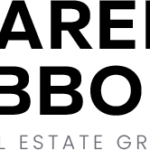
Introduction
Closing costs are a vital aspect of home buying, often surprising first-time buyers. These expenses involve fees related to transferring property title from seller to buyer, primarily the buyer’s responsibility.
Factors Influencing Costs
The amount of closing costs varies based on factors like location, property type, and new construction. Typically, Canadians budget 3% to 4% of the resale property’s purchase price, translating to $6,000 to $8,000 for a $200,000 home.
Common Closing Costs
Several standard closing costs include property evaluation, land survey, title insurance, legal fees, taxes, insurance, pre-paid property taxes, utility bills, home inspection, mortgage insurance, and moving expenses.
Breaking Down Costs
- Property Evaluation Fee: Up to $300, paid to the lender for a home appraisal.
- Land Survey Fee: Up to $2,000 for property size/type verification; title insurance might be an alternative.
- Title Insurance: Around $400, safeguards against title defects.
- Legal Costs: Approximately $1,500 plus GST/HST, covering lawyer services for mortgage preparation, title search, and deed drafting.
- Taxes: Vary by municipality and province; calculated based on home buying price, mainly for resale homes.
- Insurance: Ensure coverage for fire/property damage and personal belongings.
- Pre-paid Expenses: Reimbursement to the seller for pre-paid property taxes, utility bills, and other charges; up to $2,000.
Budgeting Tips
- Research Fire/Property Insurance Costs: Obtain current rates from your lawyer or notary for accurate budgeting.
- Understand Adjustments: Reimburse the seller for pre-paid expenses through adjustments calculated by the lawyer.
Conclusion
While closing costs can be significant, understanding and budgeting for them is crucial when buying a home in Canada. By anticipating these expenses, mainly the buyer’s responsibility, you pave the way for a smoother home-buying experience.
Please contact Jared Gibbons, your local realtor, should you have any questions!
